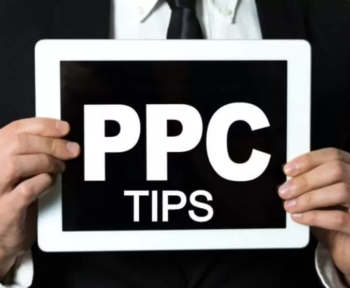New to online marketing? Sometimes you just have to watch your budget shrink to wonder if there is a quick and effective way to attract visitors to your site.
Marketing is still a real lottery, but some strategies offer higher success rates. Pay per Click (PPC) ads are among the options available to small businesses looking to increase their visibility and measure the results of their marketing efforts.]
Table of Contents
What is PPC Marketing?
With PPC marketing, you pay to show your ads in the top placements on sites and in search results. Choose the keywords to target and decide the maximum amount you are willing to spend on a click.
PPC stands for pay-per-click (pay-per-click), it is a type of advertising in which advertisers pay a fee every time their ad is clicked.
This amount is the maximum cost per click (CPC). Budget-conscious marketers like this model because they only have to pay a commission when someone clicks on an ad.
Suppose you set a monthly limit of $ 200 and a maximum CPC of $ 2.00. It would take at least 100 clicks to run out of your budget. This means you pay $ 200 for 100 leads.
Of course, not all clicks on your ads will lead to a purchase. But if you convert even 10 percent of those clicks and each customer spends more than $ 20, you’ve already made a profit.
The PPC model is typical of digital marketing . Search engine advertising, for example, is one of the most popular forms of PPC.
It allows advertisers to bid for ad placement in sponsored links of a search engine when someone searches for a keyword related to their commercial offer.
How Does PPC Marketing Work?
Many web publishers and social networking sites host PPC ads. PPC ads are labeled “Ad” and appear above organic search results.
On social media sites, PPC ads often look like standard posts in the news feed. The two most popular PPC models are the auction and the fixed rate. Either way, you create a fixed budget and choose the keywords you want to target. The main difference is that with live auctions, such as through Google Ads, you have to win the auction for the ad to appear.
The PPC platform suggests a bid amount for your keywords. When someone searches, an auction is triggered between different bidders targeting similar keywords. The platform rewards the best placement based on maximum CPC and bidders’ quality ratings.
As a small business owner, you may be reluctant to participate if the best position goes to the highest bidder. Sophisticated PPC platforms, however, take other factors into accounts, such as click-through rate and relevance.
Click-through rate (CTR) is the ratio of clicks on an ad to the number of times it is viewed. The average click-through rate for ads hosted on Google Ads is around two percent, according to Wordstream.
Measuring relevance means determining the quality of your ads and how they relate to your landing page. All of these factors contribute to your position and actual cost-per-click, which may be lower than your bid.
PPC and SEO
When you search online, the search engine strives to provide the most useful results. For a site to rank well in organic results, it needs to be optimized using relevant content and keywords.
Getting a high ranking takes a lot of time and effort. You need to update the site regularly and create content that people want most.
PPC is a type of paid search engine marketing (Search Engine Marketing or SEM) which is a non-organic search process.
If you already know the basics of SEO, you might ask yourself a number of questions. What is PPC marketing for? Why make it difficult for you to want to appear in paid results when you can get visitors without paying a dime using SEO?
In summary, balancing PPC and SEO can seriously boost your online marketing strategy. Consider these essential factors:
- Short-Term Lead Generation: SEO is a long-term strategy that depends on continual content creation. Most websites, however, experience occasional dips in traffic when marketing efforts falter. Running PPC campaigns can help you attract new leads. If your ads lead to optimized, quality sites, your PPC campaigns will be very successful and your costs will drop.
- Precise Targeting: Good keyword research is the foundation of any PPC campaign. Using long tail keywords can help you reduce the number of irrelevant clicks that hurt your conversion rate. Many PPC platforms allow you to narrow your demographic criteria. This allows you to narrow your audience based on characteristics like age, gender, and browsing activity.
- Performance Measurement: PPC marketing gives you transparent access to the source and frequency of quality leads. Using real-time data, you can invest in small test campaigns and adapt your SEO tactics to improve your results.
Tips for a successful PPC campaign
Well thought-out, a PPC campaign is a good way to separate good leads from bad ones. Of the thousands of people who see your ad, interested people are most likely to click to learn more. However, PPC marketing can be chaotic without a good strategy. Here are some common reasons why PPC campaigns fail:
Poor landing pages: The cost and position of PPC ads depend on how consistently you deliver what people are looking for. Having good landing pages is essential and it is recommended that you create different pages for each call to action. Think about the action you want visitors to take. Do you want them to make a purchase? A download? Subscribe to your mailing list? Each landing page should highlight the added value you want to bring to each consumer segment. Too many calls to action can be confusing and drive visitors away.
Boring Ads: All the work you put into consumer research and keyword research won’t have any impact if your ad text is sleepy. Make sure the headlines contain a strong selling point and the ad copy answers the most important question readers might have. If consumers are looking for “buy brown biker boots”, make it clear that this is what they will find on your site.
Poor performance management: Don’t just run the same campaign over and over again. Pay attention to what generates conversions and what doesn’t. Simultaneously test groups of keywords to compare them. Even better, use negative keywords to prevent your ads from showing for unrelated search terms.
PPC marketing isn’t for everyone, and building profitable campaigns takes practice. To increase your profits, you need to define clear PPC goals. Consider where your customers spend their time online before choosing a PPC platform.
If online engagement is essential to your business model, you may need to gain social media followers before your ads can make a real impact.
The most important thing is to avoid comparing your business with others. Don’t give up because you don’t get stunning results right from the start. PPC is a very personalized marketing style.
Small changes to your text, keywords, or budget can make a huge difference. If you decide to give PPC marketing a try, approach it as an experiment and be prepared to avoid the pitfalls.





6 Comments
Lilian
My spouse and I stumbled over here from a different website and
thought I might as well check things out. I like what I see so
now i’m following you. Look forward to looking at your web page yet again.
inamdurrani60
Thnks Lilian make sure to share with others too have a bright future ahead
Jody
My family always say that I am killing my time here at
web, except I know I am getting experience daily by reading such pleasant posts.
inamdurrani60
Hello Jody keep visiting and make sure to implement what You learn Thanks again!!!
Roberta
I read this paragraph completely about the resemblance of newest and preceding technologies, it’s remarkable article.
inamdurrani60
Thanks Roberta for your gratuitous response